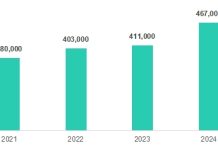SME Bank Malaysia Bhd has reaffirmed its commitment to playing a key role in advancing the government’s Halal Industry Master Plan 2030 (HIMP 203) through its five-year Halal Roadmap.
This roadmap is anchored by the bank’s robust Islamic financing propositions, as well as its ongoing capacity-building and capability development initiatives to stimulate the vibrancy of the Halal sector.
Datuk Dr. Mohammad Hardee Ibrahim, Acting Group President/CEO of SME Bank, said, “Our commitment to supporting the Government’s HIMP 2030 is reflected in the development of our comprehensive five-year Halal Roadmap, which includes effective Shariah-compliant financial solutions.
“This roadmap supports the Halal ecosystem through three core pillars: capacity building, product innovation, and funding, along with efforts towards Halal globalisation. It is designed to help businesses obtain Halal certification, while providing easier access to capital and empowering them to grow within the Halal market, both domestically and internationally.”
He added, “We are also one of the financial institutions mandated in the National Budget 2024 to mobilise the HalalBiz Financing Programme, which encourages MSMEs to participate in the Halal ecosystem.
“In addition, our Business Exports Programme (‘BEP’) supports companies in expanding their capacity and capability for exports, including those in Halal-related sectors. These initiatives reflect our steadfast commitment to stimulating the growth of the Halal segment.
“To date, our financing portfolio for Halal-related sectors stands at approximately RM2.41 billion, representing about 27% of the Bank’s total portfolio across various key affirmative segments of the economy.”
Through its subsidiary, the Centre for Entrepreneur Development and Research Sdn. Bhd. (CEDAR), SME Bank continues to energise the SME ecosystem through various business coaching sessions, Halal certification consultations, and Halal roadshows.
These efforts are mobilised through the Halal Product Capacity Building Programme, the Halal Entrepreneurial Capacity Development Programme, and the Halal Technology Entrepreneurship Programme.
Jumadi Kadir, Group Chief Shariah Officer of SME Bank, emphasised the integration of the “Halal Tayyib” concept into the Bank’s Halal Roadmap. “This goes beyond mere compliance with Halal standards and ensures ethical practices across the entire Halal industry, fostering a thriving ecosystem for SMEs,” he said.
According to the Halal Industry Master Plan 2030, Malaysia’s Halal market is projected to reach RM523.3 billion, contributing nearly 11% to Malaysia’s gross domestic product (GDP) by 2030.
This growth is expected to create over 700,000 job opportunities, underscoring the significant economic potential of the Halal sector. Currently, the Halal industry contributes approximately 6% to 7% of the country’s GDP, with an estimated market valuation of RM64 billion.
The HIMP 2030 is a strategic initiative aimed at positioning Malaysia as a prominent leader in the global Halal economy. It is anchored around seven strategic thrusts, including enhancing Halal-friendly policies and legislation, creating new and larger market spaces, establishing a bigger pool of Halal industry experts, enhancing integrated infrastructure development, fostering thought leadership, producing more home-grown Halal champions, and encouraging more competitive Bumiputera participation.















